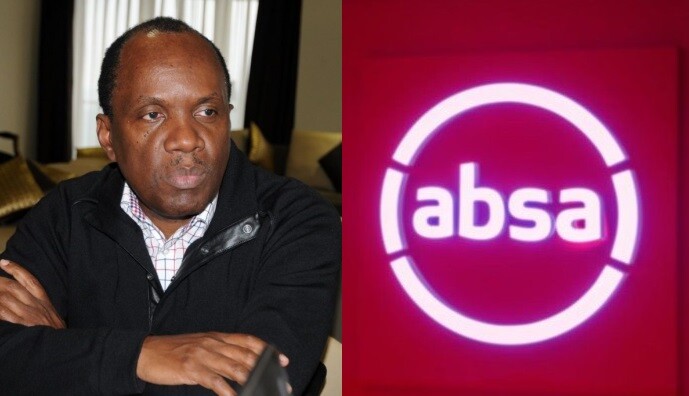City Businessman Patrick Bitature and Absa Bank Uganda have been drawn into a legal dispute over a Shs50 billion loan that the financial institution has called in from Bitature’s companies.
The dispute came to light at the end of September when Absa filed a civil suit at the Commercial Division of the High Court against Mr Bitature seeking recovery of an outstanding loan amount of $13.6m (approx. Shs50b). The claim was premised on a consent judgment signed between the parties.
Lawyers acting on behalf of Mr Bitature filed a miscellaneous application to have the consent judgment struck down as having been obtained by economic duress. They also argued that the agreement was illegal because only one company director had signed it. But Justice Stephen Mubiru, presiding over the miscellaneous application, ruled against the businessman.
“The applicant has been unable to prove that the consent judgment is voidable for fraud, economic duress, mistake, misrepresentation, illegality or lack of capacity,” Justice Mubiru said in a ruling delivered on September 28, but which this publication obtained only recently.
“It is therefore in the interest of justice that the consent judgment be maintained and upheld by this court to bring finality and closure in litigation between the two parties. Consequently, the application is dismissed with costs to the respondent.”
Debt origin
In May 2018, Absa extended financing worth $8 million to Bitature’s company, Electro-Maxx, a power generator. In August of the same year, Absa lent Electro-Maxx another $10 million to finance a mini oil refinery through Simba Oil Limited, a related company. Mr Bitature guaranteed the two loans to the companies.
The companies, however, failed to service the loan. On March 31, 2020, Absa issued a demand for repayment of the outstanding loan but Electro-Maxx then sued the bank seeking to have the loan facilities declared illegal and the securities nullified.
The lawsuit culminated in a consent judgment in May 2020, in which Electro-Maxx acknowledged it owed Absa $15,891,168. The company agreed to a monthly repayment schedule for the principal plus interest at 8.73 percent per year. The consent judgment allowed Absa to enforce the securities for the loans, including Mr Bitature’s guarantee, if Electro-Maxx defaulted on more than three monthly instalments.
Under the consent judgment, Electro-Maxx was to pay $75,000 per month from August 2020 to July 2021. Thereafter, the company was required to pay $550,003 per month until April 2024, with a final payment of $342,343 due in May 2024.
The company paid the $75,000 monthly instalments and reduced the outstanding loan amount to $14.9m but failed to meet the higher instalment payments that were meant to kick off in August 2021.
The consent judgment was subsequently varied to allow Electro-Maxx to pay $90,000 per month from August 2021 to January 2022. The repayments would then increase to $100,000 per month from February to April 2022; $120,000 per month from May to October 2022, and then $663,559 per month for the next 22 months up to August 2024.
Electro-Maxx paid the first 13 months under the new terms until September 2022 bringing the outstanding debt down to $13,431,168. When the payment due rose to $663,559, the company failed to pay and again negotiated new repayment terms.
It would pay $120,000 per month for each of the 10 months from October 2022 to July 2023; $999,256 per month from August 2023 to July 2024, and a final payment of $998,145 on August 31, 2024.
However, on July 12, 2023, three years after signing the consent judgment, and after paying 13 out of an expected 46 repayment instalments under it, Electro-Maxx went to the High Court to challenge the consent judgment, which Justice Mubiru dismissed.
“What is clear is that the applicant made some payments in compliance with the terms of the consent judgment but subsequently defaulted and requested for a restructuring of the payment schedule,” he noted in his ruling.
In court filings, Electro-Maxx indicated that it was in a legal dispute with Uganda Uganda Electricity Transmission Company Limited for not fulfilling its end of the bargain in a power-purchase agreement that would have provided the private firm with liquidity.
This publication recently reported that the government had entered into a five-year deal to buy power from Electro-Maxx to offset the money owed to the company.
The businessman whose empire also includes hotels, real estate, and a telecoms retailer, has also been in a long-running legal dispute with Vantage, a South African financier. In August a London-based arbitrator ordered Mr Bitature, his wife and their respective companies to pay Shs244 billion to the South African lender.
The London arbitration followed several lawsuits in Uganda in which lawyers acting for Mr Bitature sought unsuccessfully to nullify the loans on the basis that the South African company did not have a physical presence in Uganda and was not a regulated lender.
Last month Justice Ocaya Thomas blocked Mr Bitature and the Uganda Registration Services Bureau from diluting the South African’s shareholding interest in companies that were lent the money. The judge also stopped the Commissioner for Land Registration from transferring or removing Vantage’s interest in various properties mortgaged as securities for the loans.
Source: Monitor
If you would like your article/opinion to be published on Uganda’s most authoritative news platform, send your submission on: [email protected]. You can also follow DailyExpress on WhatsApp and on Twitter (X) for realtime updates.



